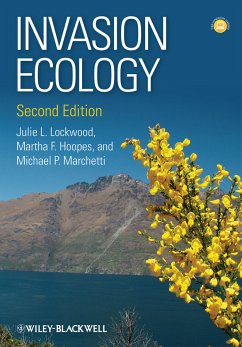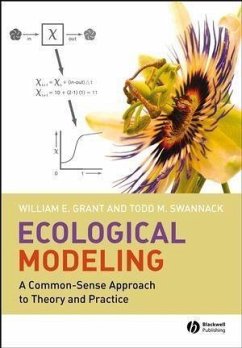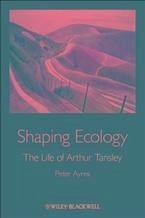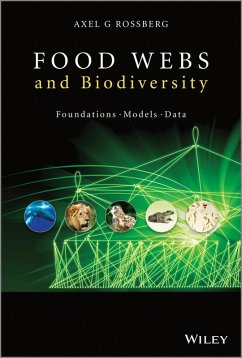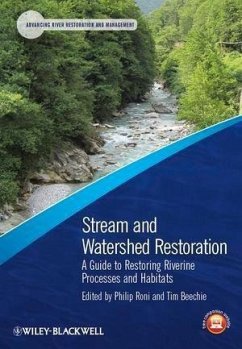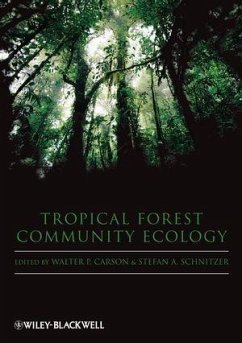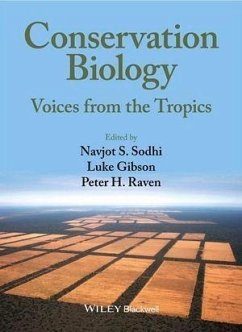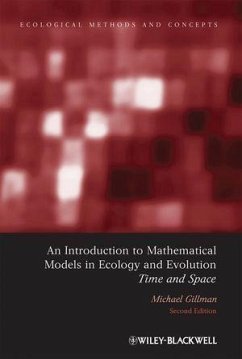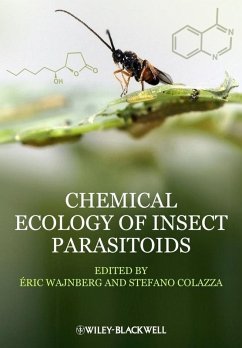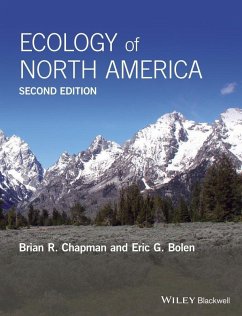
Metabolic Ecology (eBook, PDF)
A Scaling Approach
Redaktion: Sibly, Richard M.; Kodric-Brown, Astrid; Brown, James H.
Versandkostenfrei!
Sofort per Download lieferbar
71,99 €
inkl. MwSt.
Weitere Ausgaben:

PAYBACK Punkte
0 °P sammeln!
Metabolic EcologyMost of ecology is about metabolism, the ways that organisms use energy and materials. The energy requirements of individuals (their metabolic rates) vary predictably with their body size and temperature. Ecological interactions are exchanges of energy and materials between organisms and their environments. Therefore, metabolic rate affects ecological processes at all levels: individuals, populations, communities and ecosystems. Each chapter focuses on a different process, level of organization, or kind of organism. It lays a conceptual foundation and presents empirical exampl...
Metabolic Ecology
Most of ecology is about metabolism, the ways that organisms use energy and materials. The energy requirements of individuals (their metabolic rates) vary predictably with their body size and temperature. Ecological interactions are exchanges of energy and materials between organisms and their environments. Therefore, metabolic rate affects ecological processes at all levels: individuals, populations, communities and ecosystems. Each chapter focuses on a different process, level of organization, or kind of organism. It lays a conceptual foundation and presents empirical examples. Together, the chapters provide an integrated framework that holds the promise for a unified theory of ecology.
The book is intended to be accessible to upper-level undergraduates and graduate students, but also of interest to senior scientists. Its easy-to-read chapters and clear illustrations can be used in lecture and seminar courses. This is an authoritative treatment that will inspire future generations to study metabolic ecology.
Most of ecology is about metabolism, the ways that organisms use energy and materials. The energy requirements of individuals (their metabolic rates) vary predictably with their body size and temperature. Ecological interactions are exchanges of energy and materials between organisms and their environments. Therefore, metabolic rate affects ecological processes at all levels: individuals, populations, communities and ecosystems. Each chapter focuses on a different process, level of organization, or kind of organism. It lays a conceptual foundation and presents empirical examples. Together, the chapters provide an integrated framework that holds the promise for a unified theory of ecology.
The book is intended to be accessible to upper-level undergraduates and graduate students, but also of interest to senior scientists. Its easy-to-read chapters and clear illustrations can be used in lecture and seminar courses. This is an authoritative treatment that will inspire future generations to study metabolic ecology.
Dieser Download kann aus rechtlichen Gründen nur mit Rechnungsadresse in D ausgeliefert werden.



